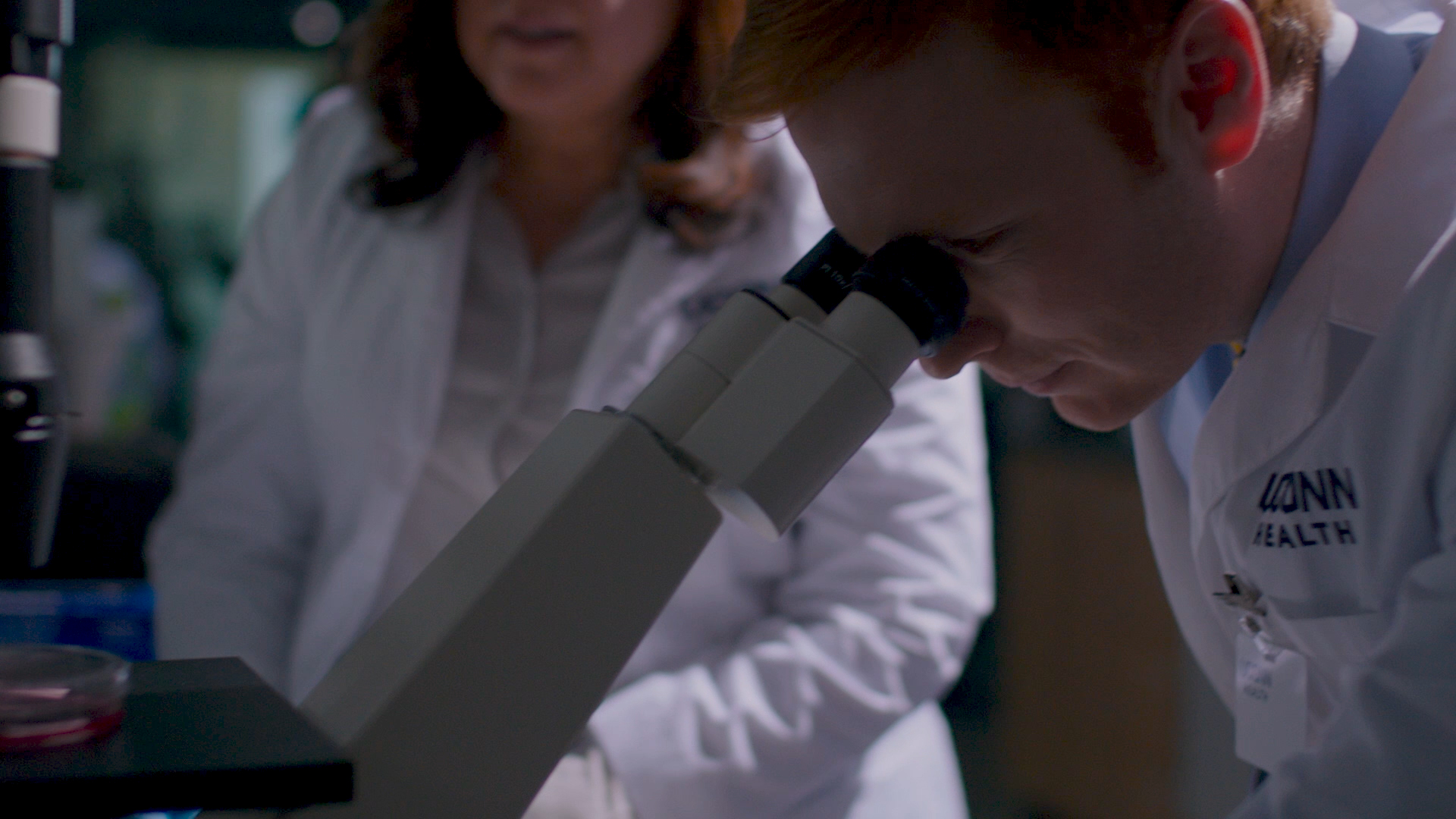Mike Papale was just 17 and an elite high school basketball player when his heart suddenly stopped beating. He was saved but the risk remains for other young athletes who suffer from hypertrophic cardiomyopathy (HCM) and don’t even know it.
HCM is characterized by a thickening of the heart muscle impeding its ability to pump blood throughout the body. It affects up to half a million people in the U.S., and is the number one cause of sudden death in young athletes. HCM also accounts for 35-40 percent of cardiomyopathies in children, according to the American Heart Association.
Dr. Travis Hinson, a joint faculty member at UConn Health and The Jackson Laboratory for Genomic Medicine, has received more than $2 million in federal funding to research the genetic mechanisms responsible for this inherited heart condition. Hinson is taking a precision medicine approach to reveal patient-specific insights into the causes and functioning of HCM. The goal is to identify and tailor treatments for individual patients like Mike so they can live long and active lives.
Following Mike’s near-death experience, he founded the In a Heartbeat Foundation. It’s mission is to prevent death from hypertrophic cardiomyopathy and sudden cardiac arrest by raising awareness, enabling research, and donating automated external defibrillators to places that need them.
Watch the video to learn how Mike miraculously survived and now enthusiastically supports the cutting-edge research being done by Dr. Hinson and his team.



